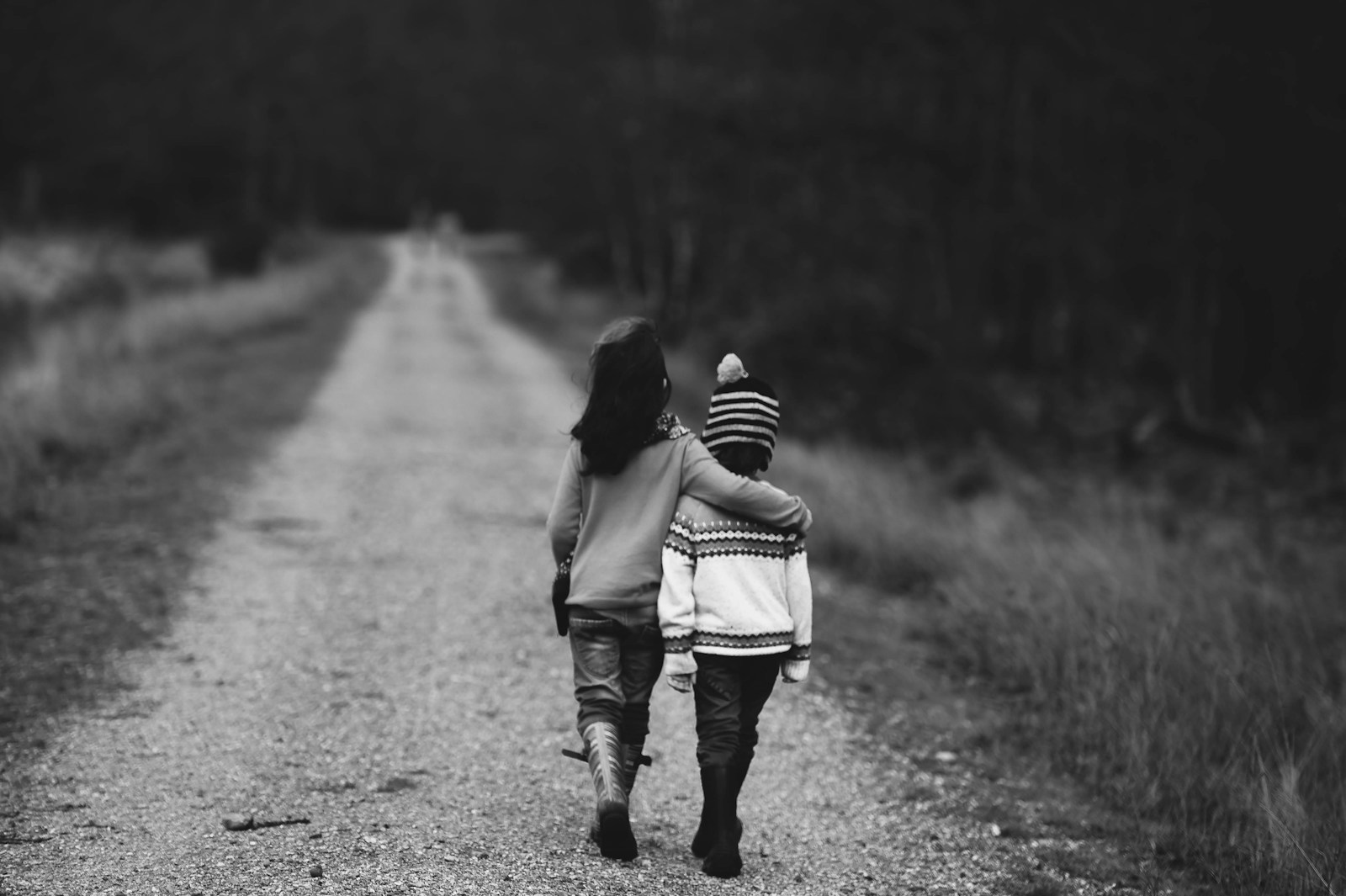
Photograph by Annie Spratt via Unsplash
Foundation pillar of social justice: Empathy
“Empathy is
seeing with the eyes of another,
listening with the ears of another, and
feeling with the heart of another.”
Alfred Adler, Psychologist
If we desire to work for social justice, one of the most effective efforts we can pursue is to encourage empathy. Practice empathy. Model empathy. Teach empathy. Lift up empathy. Because empathy is a foundation pillar of social justice. Empathy is the ability to understand and share the feelings of another person. It has been described as walking in the shoes of another, to gain insight and feeling into their experience. A humorous take on an old saying is that you should never criticize another until you have walked a mile in his or her shoes. Then, when you criticize them, they’ll be barefoot… and you’ll be a mile away from them. The point, of course, is that we should try to understand what a person is going through before judging them. More so, by understanding what they experience we develop a heightened sense to see with their eyes, listen with their ears, and feel with their heart. There is an old saying which goes “To know all is to forgive all.” If you only knew all of what another was going through, you would be inclined to forgive them, understand them, feel for them, and accept them.
Empathy involves actively sharing in the emotional experience of the other person. Empathy inspires us to stand with, speak for, and advocate on behalf of those who are on the margins of society and who need our support. Poet Rebecca Rijsdijk writes, “Understanding the actual experiences of people who are marginalized, discriminated against, or victims of injustice is made possible by empathy. We can develop a greater level of empathy by attentively listening, acknowledging their difficulties, and validating their emotions. With this knowledge, we can see how urgent it is to solve the systemic problems that contribute to social injustice and inequality.”
Amos (5:24) wrote: “Let justice roll down like water, and righteousness like an ever-flowing stream.” Justice is care and advocacy for those on the margins – those least able to advocate for themselves and those with the least power, least voice, least security, and least wealth. One of the finest translations of the word for righteousness is “right relationships.” Let the care and advocacy for those on the margins roll down like waters, and right relationships like an ever-flowing stream. Part of the watershed that feeds the ever-flowing stream of justice is wonder. Wonder can lead to empathy by causing us to pay attention to the experiences of others. Empathy, in turn, can motivate us to work towards social justice. Poet Aimee Nezhukumatathil says, “without wonder, we lose the ability to imagine lives and hearts different from us…If wonder becomes a habit, we can set the pattern for a more just and tender world.”
Can wondering about other people lead me to walk a mile in their shoes, to see with their eyes, to listen with their ears, and to feel with their heart?
All of us have opportunities to sit and people-watch, whether at a sidewalk café, waiting in the car or by a shopping area, or wherever we have the chance to observe people going by. Practice a people-watching exercise, centering upon the idea of wonder. Look at those most different from yourself, perhaps those least attractive or appealing, those from different cultures or orientations. Wonder: I wonder what they are having for dinner. I wonder if they feel neglected by others. I wonder what their hurts are. I wonder what their beliefs tell them about kindness. I wonder what regrets they may be carrying. I wonder if they feel loved. I wonder what makes them happy. I wonder if they feel alienated. I wonder what dreams they have for their future. I wonder about who they have loved. I wonder what it would be like to have a conversation with them. I wonder if I could do better at seeing them as a unique wonder, never to be repeated in all of history, and how I might view them as God’s most sacred creation. To wonder about them leads to a companionship walking on a shared journey of life. Can wondering about them lead me to walk a mile in their shoes, to see with their eyes, to listen with their ears, and to feel with their heart?
But then what? Wondering leads to empathy, which leads to action, which leads to social justice. As John Lewis said so simply, “When you see something that is not right, you must say something. You must do something.” The Center for Responsive Schools notes, “Compassionate empathy moves us past simply understanding the emotional experiences of others and compels us to take substantive action to create change. Many grassroots movements have their foundations in an understanding that not only are people suffering, but something must be done about it. Movements such as those for social and racial justice or human and animal rights have been inspired by an imperative to operationalize compassion into action.” The ability to embrace empathy serves as a foundation for understanding, acknowledging, and addressing social injustices, ultimately contributing to the creation of a more equitable and just society.
There are so many commendable actions in the work for social justice, but one of the most powerful is to feed the watershed. Wonder flows into empathy, and empathy rolls down like waters into the ever-flowing streams of justice. Let us join Amos, the prophets, Jesus, and good people of faith everywhere in feeding the watershed of wonder, kindness, and empathy. Perhaps one of the most powerful acts of social justice we can pursue is to encourage, practice, model, teach, lift up, and celebrate empathy.
Rev. John Zehring has served United Church of Christ congregations for 22 years as a pastor in Massachusetts, Rhode Island, and Maine. He is the author of more than 30 books and e-books. His most recent book from Judson Press is “Get Your Church Ready to Grow: A Guide to Building Attendance and Participation.”
The views expressed are those of the author and not necessarily those of American Baptist Home Mission Societies.



